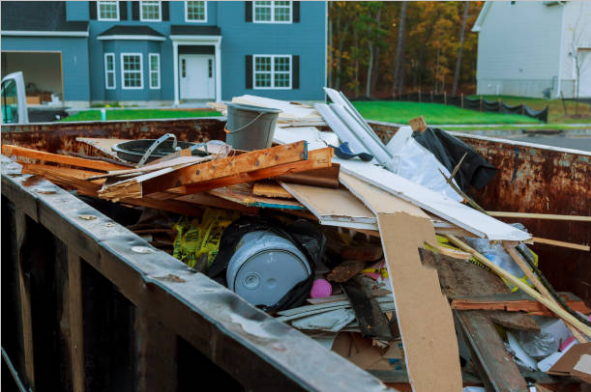Dumpster Rental Costs Demystified: Key Factors That Impact Your Budget

When tackling a big project like home renovations, decluttering, or major construction, Lee County Dumpster rental can be a practical solution for waste management.
You might be asking yourself, “How much will this cost?” Dumpster rental prices can differ due to various factors, and knowing what influences these costs will help you budget effectively and steer clear of unexpected expenses.
Dumpster Size
The dumpster size you need is one of the most significant factors affecting cost. Dumpsters come in various sizes, usually measured in cubic yards—ranging from small 10-yard options to large 40-yard containers.
A small 10-yard dumpster might be enough for a garage cleanout, while a 40-yard dumpster is better for large-scale construction projects. Larger dumpsters cost more because they can hold more waste and require more transport and disposal resources.
Picking the right size for your project is crucial; renting a bigger dumpster than necessary will add unnecessary costs, while one that’s too small might require additional rentals.
Type of Waste
Not all waste is created equal when it comes to dumpster rentals. The type of materials you’re disposing of greatly affects the total cost.
Common household waste and construction debris are typically cheaper to dispose of than hazardous materials or heavy debris like concrete and asphalt.
For instance, disposing of electronics, appliances, or hazardous materials may require specialized handling, which increases the price.
Some companies charge extra for items like mattresses, tires, and other bulky objects that are harder to recycle or dispose of.
Rental Period
The cost also depends on the length of time you need the dumpster. The majority of companies provide rental periods that span anywhere from a couple of days to a few weeks.
If you only need it for a weekend cleanup, you’ll likely pay less than someone using it for an extended home renovation.
However, you could face additional daily fees if your project takes longer than expected and exceeds the agreed rental period. To avoid this, try to plan your project timeline carefully and discuss extension fees with the rental company in advance.
Location and Proximity
Your location is another important factor that impacts dumpster rental prices. If you live in a densely populated urban area, prices may be higher due to increased demand and limited dumpster space.
Conversely, rural areas may have fewer rental companies to choose from, which can also drive up costs due to limited availability.
The distance between your property and the rental company’s facility also affects transportation costs. The farther the dumpster needs to be transported, the higher the delivery and pickup fees.
Landfill Fees and Local Regulations
Landfill tipping fees—charges for dumping waste at a landfill—can vary greatly depending on where you live. These fees are typically included in your rental cost but can still fluctuate based on the volume and type of waste. Locations with stricter waste disposal regulations may have higher fees.
Some areas also have specific rules about what can and cannot be placed in a dumpster, and violating these regulations may result in fines or extra charges. You must know your local waste disposal rules to avoid unexpected costs.
Seasonal Demand
The time of year can also influence dumpster rental prices. Due to home improvement projects, landscaping, and cleanouts, summer and spring tend to be busier seasons for dumpster rentals. During these peak seasons, prices may rise due to increased demand.
On the other hand, renting a dumpster in the off-season, like during winter, may result in lower costs. If your project’s timeline is flexible, you might save money by scheduling the rental during a less busy period.
Weight Limits and Overage Fees
Every dumpster rental comes with a weight limit, which is the maximum amount of waste you can load into the container. This limit varies based on the dumpster size and the rental company’s policies.
You’ll be charged overage fees if you exceed the weight limit, which can quickly add up. Heavy debris such as concrete, bricks, and soil can cause you to exceed these limits more easily.
Estimating your waste’s weight as accurately as possible is a good idea to avoid surprise charges.
Extra Services and Fees
Additional services, like expedited delivery or specialized pickups, can affect the cost of your rental. Some companies offer same-day delivery for a fee, while others may charge for specific pickup times outside their normal schedule.
Other fees to watch out for include permits if you’re placing the dumpster on a public street and charges for cleaning or removing hazardous waste that wasn’t disclosed at the time of rental.
Conclusion
Dumpster rental costs depend on various factors, from the size of the container and type of waste to the length of the rental period and local regulations.
Understanding these factors will better equip you to plan your project and avoid unexpected expenses. Take time to evaluate your needs, ask questions, and compare options.
With careful planning, renting a dumpster can be a stress-free and cost-effective solution for managing waste during any project. Contact WasteLogic Dumpsters LLC today!



